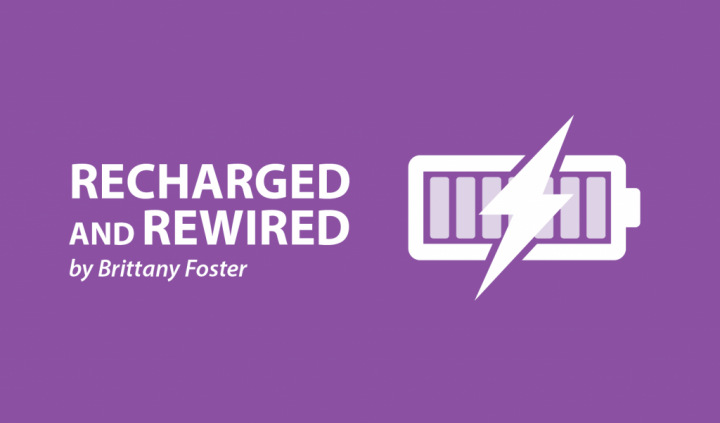The Added Benefits of Receiving Support from Those Who ‘Get It’

“It’s only when our support systems look like they might fail us that you realize how much we depended on them all along.” –Meredith Grey, “Grey’s Anatomy”
With pulmonary hypertension and all types of chronic illness, difficult days are inevitable. For me, these are the days I can’t get out of bed because of dizziness and fatigue, when bodily weakness won’t allow me to take more than a walk to the bathroom, and when the disease physically and mentally drains me. When I feel my bodily systems have failed me, I rely on other types of support to give me the strength to take on another day. On these days, I depend on support from family, friends, my boyfriend, my therapist, my team of doctors, and online support groups filled with those who “get it.”
Managing my chronic illness takes an army. Depending on the type of day I’m having, each person that’s a part of my support system provides me with different pieces of what I need. Placing my needs in the hands of a single person wouldn’t work and would be too great of a burden for one supporter to handle. My small army of support consists of those who care for my physical, emotional, financial, and social needs. These people provide me with distractions, comfort, understanding, and love. I choose them to help me get through the hardest days and keep me pushing forward.
Although I receive so much love and support from my medical team, boyfriend, and every single family member and friend, sometimes it’s hard when they don’t understand exactly what I experience. They can sympathize, but on my hardest days, they can’t empathize. This was the missing piece of my support system that I’m lucky enough to have found.
When I was diagnosed with pulmonary hypertension and feeling the effects of my illness, I became overwhelmed. I didn’t know anyone under the age of 80 who wore oxygen. I felt alone, terrified, and nearly hopeless. All of this changed when I found support through social media. I’m forever grateful for online groups, where I have received amazing support from those who actually understand what I experience.
As a columnist for Pulmonary Hypertension News, I share my story, connect with others who have this condition, and help to moderate the forums. All of this has restored my hope. The online forums give me a platform to make my voice heard. When I write something and others respond with some version of “I understand how you feel,” I don’t feel alone anymore in my thoughts, worries, frustrations, and physical feelings.
It’s a powerful feeling to express vulnerability. It’s even more powerful when I share this vulnerability and someone reaches out to say, “I get it.” There are so many thoughts and feelings that go through my mind every single day. The forums give me a safe space to vent these feelings to readers who won’t just say, “I’m sorry about how you’re feeling.” My hope in writing and sharing my deepest feelings is that readers will see what I’m posting and gain the courage to share their most vulnerable thoughts, too.
The forums and columns are a space to share thoughts about difficult topics like mental illness, death, life expectancy, symptoms, worries, and frustrations. Although I get amazing support from my other support systems, certain topics tend to make healthy people feel uncomfortable.
The reality is that there is NOTHING comfortable about the illness we are living with every day. It’s all right to rely on support systems. When we include support from those who “get it,” it feels like the missing piece of support that we need.
Who is a part of your support system? What are some ways you receive support from them? Do you belong to social media and online support groups? What topics would you like to discuss that may be uncomfortable to share with family and friends?
***
Note: Pulmonary Hypertension News is strictly a news and information website about the disease. It does not provide medical advice, diagnosis, or treatment. This content is not intended to be a substitute for professional medical advice, diagnosis, or treatment. Always seek the advice of your physician or other qualified health provider with any questions you may have regarding a medical condition. Never disregard professional medical advice or delay in seeking it because of something you have read on this website. The opinions expressed in this column are not those of Pulmonary Hypertension News or its parent company, Bionews Services, and are intended to spark discussion about issues pertaining to pulmonary hypertension.









Jan
Great article Brittany thank you. I had an interesting thing happen on Friday. I had an appointment with a new Podietrist who just lost a close friend to HP the middle of April. He said she was on the list for a transplant but just couldn't live with it any longer and gave up. The thing I found interesting about the appointment is he took an interest in me and understood what this disease can do. It's interesting where you find some support.
One other thing I have shared with my closest supporters such as my husband and kids is your article "Time spent on Self-Care is never wasted". It was as if you wrote that for all of us and how we have to plan our lives and what we have to do when the energy just isn't there. It really helped with their understanding of when I am having bad days. Thank you for that article too.